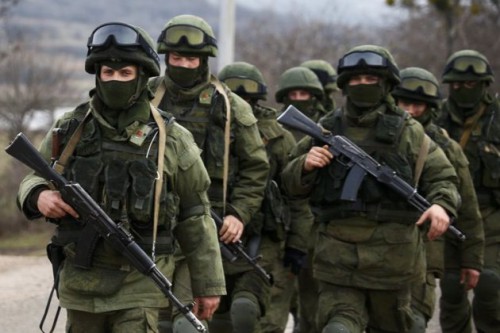Notes sur le passé recomposé en narrative
Ex: http://www.dedefensa.org
Parmi l’avalanche de nouvelles, d’initiatives, de montages, de false flag, de narrative qui caractérise la crise ukrainienne, on en distingue certaines qui conduisent à une hypothèse centrale. Le Système aux abois, dans le chef de l’américanisme et de la présidence BHO qui sont dans la même situation, jouent leur va-tout dans une tentative paradoxale de ressusciter le passé pour imposer définitivement “leur avenir” au monde. Il s’agit du tournant ultime, du quitte ou double, du tout au rien. La pièce ainsi montée, – comme l’on dit d’une “pièce montée” qui couronne un mariage, – est celle d’une “nouvelle Guerre froide” qui prend corps sous la forme d’articles divers, d’un rapport pour la Maison-Blanche, d’une fuite opportune vers le toujours-utile New York Times et ainsi de suite. La narrative prend forme. On croit revivre.
Il s’agit donc bien de cela : une deuxième Guerre froide, le futur par le retour vers le passé, le passé qui est le retour à la case-départ. L’occasion en est cette crise ukrainienne dont on ne finit pas de découvrir l’ampleur, l’extension, l’universalisation, – la crise ukrainienne, catastrophe en elle-même et catastrophique bouée de sauvetage pour une direction-Système des USA en perdition.
Parmi les diverses initiatives et mesures qui confortent cette hypothèse et l’interprétation que nous en offrons, nous en choisissons deux qui ont une puissante signification. L’une donne une appréciation générale de la conception générale en train de se mettre en place à Washington, l’autre une appréciation opérationnelle montrant un début d’application de cette appréciation ; mais, certes, si nous choisissions deux événements liés l’un à l’autre par une logique qui suggérerait une planification précise, une élaboration rationnelle, notre conviction est qu’il s’agit plutôt d’une agglomération de mesures et d’événements différents qui se sont imposés sans la moindre cohésion et, en fait, montrant que les événements dictent leur loi, plus que jamais. Pour mieux mettre en évidence ce constat fondamental, nous allons renverser l’ordre suggéré par la description que nous développons pour restituer la vraie chronologie qui est l’inverse que celle que nous suggérerait l’identification des deux événements.
La marionnette type-courroie de transmission
... Ainsi, le premier sujet abordé semblerait la conséquence du second qui suivra, mais il ne l’est pas. Il constitue un événement incontrôlé suscité par d’autres événements incontrôlés depuis la mise en action de la crise ukrainienne, amenant des réactions des directions politiques et directions-Système concernées pour le développement d’une nouvelle situation opérationnelle. Cette nouvelle situation opérationnelle, qu’on croirait enfantée par la “nouvelle conception générale en train de se mettre en place à Washington” (nous refusons de la baptiser “nouvelle stratégie” ou “nouvelle doctrine”, qui impliquerait une notion d’ordre et de logique, et de planification, qui est absolument et totalement absente du propos à son origine), se matérialise essentiellement par l’annonce de l’envoi de troupes US dans des pays bordant la Russie, évidemment présentées comme “défensives”. Il s’agit essentiellement de la Pologne et des pays baltes ; on comprend aussitôt, sans étonnement particulier, que c’est bien la Pologne qui joue un rôle fondamental dans ce bouleversement.
La nouvelle concerne donc l’envoi de troupes US en Pologne, – 10 000 hommes au minimum, voudraient les Polonais, 5 000 au plus selon la position de départ du Pentagone. On négocie... WSWS.org donne le 19 avril 2014 les détails des circonstances accompagnant le début de l’officialisation du déploiement des troupes US en Pologne, avec d’autres éléments militaires, par le biais des confidences sonores du ministre polonais de la défense visitant le Washington Post après une rencontre avec le secrétaire à la défense Chuck Hagel, – signes, tout cela, que la Pologne est de plus en plus la courroie de transmission, la “marionnette” mais aussi le partenaire actif et va-t’en-guerre des USA en Europe centrale.
«According to the Post, Polish Defense Minister Tomasz Siemoniak, visiting the newspaper after meeting with US Secretary of Defense Chuck Hagel at the Pentagon, said, “the decision has been made on a political level and that military planners are working out details.” The article continued: “There will also be intensified cooperation in air defense, special forces, cyberdefense and other areas. Poland will play a leading regional role, ‘under US patronage,’ he said.”
»The report makes clear that the US entered into the Geneva agreement with Russia, purportedly to “deescalate tensions” in Ukraine, in bad faith, intending to use Russia’s supposed breach of the deal as justification for expanded sanctions and a further aggressive buildup of US and NATO forces in Eastern Europe aimed at encircling and strangling Russia...»
La marionnette qui rugissait
Du côté polonais, les choses sont simples : c’est la fièvre de la guerre, avec l’affirmation furieuse de l’“ennemi russe”. Nous sommes à des années-lumière de la tentative de réconciliation Pologne-Russie du printemps 2010 (voir, par exemple, le 19 avril 2010). La Pologne est retombée dans la russophobie guerrière, en s’appuyant sur les USA dont elle estime qu’elle est en voie de devenir le “meilleur vassal” en Europe. La dialectique retrouve les accents des phases les plus agressives de l’histoire des relations entre la Pologne et la Russie. La Pologne veut évoluer vers une place privilégiée : bien que membre de l’OTAN et de l’UE, c’est d’abord en tant que “partenaire” bilatéral et interlocuteur européen privilégié des USA qu’elle veut traiter avec les USA.
Cette prétention, ce n’est pas rien. Elle risque autant d’irriter les partenaires européens de la Pologne, autant que de l’en éloigner dans certaines circonstances dont la plus aigue est évidemment d’une possibilité d’affrontement avec la Russie. (On verra ce qu’il restera, dans cette occurrence, du “Triangle de Weimar”, qui prétendait établir un lien de sécurité spécifique France-Allemagne-Pologne.) Les Allemands sont très loin d’être partisans d’un affrontement avec la Russie, comme l’a très récemment montré leur ministre des affaires étrangères suggérant que l’énergie dépensée à trouver de nouvelles sanctions contre la Russie serait mieux employée à chercher une véritable désescalade en Ukraine ; ils pourraient très vite s’impatienter, à mesure que cette position spécifique et bombastique de la Pologne s’affirmerait. Cela fait partie des tendances de divisions en Europe, entre Européens et entre l’Europe et les USA (voir le 14 avril 2014).
Le JCS et le “proconsul”
Du côté US, les choses ne sont pas plus simples et peut-être même sont-elles plus compliquées. Restons-en pour l’instant à la seule position du Pentagone, la Maison-Blanche et le département d’État ayant basculé dans le maximalisme compulsif irradiant de leurs conseillers d’influence venus de l’équipe neocons-R2P (voir le 22 avril 2014). Le Pentagone préférerait 5 000 soldats US en Pologne, et encore parce que le président demande des renforts, aux “10 000 hommes minimum” réclamés par les Polonais. La raison essentielle de cette pusillanimité est que le Pentagone ne dispose pas de réserves suffisantes, parce que les forces US sont déjà engagées partout, très diminuées, extrêmement limitées. L’autre “raison essentielle” (l’essentialité est élastique, par le temps qui courent et bondissent), c’est que le Pentagone ne se sent pas vraiment d’attaque pour tout faire pour défier les Russes et risquer une chose très, très sérieuse. On verra qui l’emportera lorsque le volume du contingent US en Pologne sera déterminé, et sous quelle forme.
Il y a déjà là un conflit interne qui se dessine. Les dernières péripéties, le silence des uns et les déclarations des autres, montrent qu’il s’agit d’un conflit des plus classiques, entre la maison-mère, le Joint Chiefs of Staff (JCS) et son président le général Dempsey au Pentagone d’une part, et d’autre part le général Breedlove, commandant en chef suprême en Europe (SACEUR) de la structure OTAN et chef du Central Command Europe (commandement national US). En temps de crise plus particulièrement, les relations entre la direction de Washington et le “proconsul” militaire US en Europe ont toujours été délicates. Le “proconsul” a tendance à soutenir les revendications des “vassaux européens” (la Pologne en l’occurrence, pour le cas qui nous occupe) tandis que le Pentagone défend ses intérêts généraux. (Un tel conflit a eu lieu à plusieurs reprises, notamment avec les SACEUR Goodpaster en 1973, Haig en 1976, Rogers en 1983, etc. Le dernier en date et l’un des plus fameux est celui des rapports exécrables entre le SACEUR, le général Wesley Clark, et le JCS de Washington lors de la guerre du Kosovo, cela menant jusqu’à une mise à pied à peine dissimulée de Clark en 2000.)
Le Pentagone sur les genoux
Ici, on mettra l’accent sur une situation qui se répercute sur toutes les crises, de diverses façons. A la différence de 1947-1948, à laquelle le document évoqué plus bas fait allusion comme référence d’une “nouvelle Guerre froide”, la situation de la puissance militaire US est aujourd’hui dans une situation radicalement différente. En 1947-1948, le budget du Pentagone, littéralement pulvérisé à partir de la victoire sur le Japon, était si bas que l’industrie aéronautique US dans sa quasi-entièreté était au bord de l’effondrement. (Certains jugent même, avec des arguments extrêmement convaincants, et une enquête minutieuse pour le cas invoqué, que la Guerre froide fut lancée du côté US à partir de ce qui fut en bonne partie un montage, pour sauver spécifiquement cette industrie à partir de commandes publiques massives et urgentes d’avions militaires. Voir notre texte du 12 février 2003 extrait de La Lettre d’analyse dd&e du 10 avril 1995, reprenant une analyse d’un livre de Frank Kofsky publié en 1994 sur cette affaire : Harry S. Truman and the War Scare of 1948, A Successful Campaign to Deceive the Nation.)
Aujourd’hui, par contre, le budget du Pentagone est colossal : nominalement autour de $650 milliard, il dépasse en réalité les $1 000 milliards une fois prises en compte des dépenses affectées à d’autre poste (renseignement, énergie avec le développement nucléaire, etc.). Malgré cette monstruosité budgétaire, les capacités militaires US ne cessent de se réduire, au point où l’US Army est aujourd’hui quasiment au niveau des effectifs de 1940, alors au sommet de la politique isolationniste de désengagement (voir le 3 mars 2014). Une “mobilisation” pour une “nouvelle Guerre froide”, comme celle de 1948 pour la Guerre froide initiale, impliquerait, dans une bonne logique américaniste, un “réarmement”, c’est-à-dire une augmentation substantielle du budget militaire. Dans les conditions actuelles, une telle perspective est, successivement, extraordinairement et paradoxalement incertaine ; d’abord, par ses implications budgétaires catastrophiques alors que la dette menace l’équilibre du gouvernement US ; ensuite par les contraintes légales (“séquestration”) existantes pour au contraire réduire ce budget ; enfin, par l’incertitude où l’on se trouve concernant les capacités du Pentagone, empire du gaspillage et de la gestion catastrophique, de savoir si des augmentations conséquentes du budget ne conduiraient pas à un surcroît de gaspillage, de corruption et de gestion catastrophique, plutôt qu’à une augmentation des capacités. (La question est : les USA sont-ils encore capables de mobiliser, dans le vrai sens du mot ?) Les chefs du Pentagone, arcboutés sur leur puissance bureaucratique, devinent cela et ne sont pas nécessairement partisans d’une telle augmentation qui menacerait tout l’édifice, en même temps que le gouvernement US, pour une cause dont on a vu plus haut que ces chefs-là ne l’apprécient guère.
The Rest Of the World contre la Russie
Le deuxième point que nous voulons mentionner constitue l’essentiel en matière de communication. Il est exposé dans un article qui vient de paraître dans le New York Times, le 20 avril 2014, et c’est sans nul doute le plat de résistance. Il s’agit d’une nouvelle posture, – que d’aucuns qualifieront de “stratégie”, voire de “doctrine” s’ils en ont le goût, – de l’administration Obama vis-à-vis de la Russie. Nous parlons donc, comme on l’a signalé, d’une “nouvelle Guerre froide” basée sur les conceptions US de l’immédiat après-guerre, et précisément sur la stratégie du containment élaborée par George Kennan, qui occupait à cette époque le poste de la direction de la planification au département d’État. Le passage où cette référence est proposée se termine par une phrase explicitant l’opérationnalisation du concept, qui consiste à “isoler” la Russie du reste du monde ; l’aspect sidérant et surréaliste de cette opérationnalisation est que les USA se proposent de former une alliance générale quasiment du reste du monde contre la Russie, y compris la Chine, qu’entretemps le secrétaire à la défense Hagel est allé avertir de ne pas trop irriter le Japon au risque de voir les USA se dresser contre elle, quasi-opérationnellement (Eric Margolis, le 20 avril 2014 sur UNZ.com : «[Bismarck] would have been horrified to see Washington foolishly making enemies of Russia and China at the same time»)... Sans doute, même si cela ne nous est pas précisé, Obama compte-t-il convaincre également la Syrie, l’Iran, les autres BRICS, tous les pays qui se sont abstenus de voter à l'ONU pour la condamnation du référendum de Crimée (voir le 28 mars 2014), etc., de s’inscrire dans cette croisade internationale contre la Russie, où la Russie se retrouvera seule on vous l’assure.
«In effect, Mr. Obama is retrofitting for a new age the approach to Moscow that was first set out by the diplomat George F. Kennan in 1947 and that dominated American strategy through the fall of the Soviet Union. The administration’s priority is to hold together an international consensus against Russia, including even China, its longtime supporter on the United Nations Security Council.»
L’initiative de l’administration Obama est donc présentée comme une rupture fondamentale avec ce qui a précédé dans les relations des USA avec la Russie. Considérant, selon l’habituel penchant de la psychologie US pour l’inculpabilité (voir notamment le 26 mars 2014), que les USA ont tout fait pour “éduquer” la Russie, pour la rendre “civilisée”, et étant à ce point déçue par la fourberie de son élève, l’administration Obama décide d’une façon impériale mais qu’on devine pleine d’une immense sagesse qu’“assez c’est assez”. On écarte d’un geste négligent sinon nonchalant l’agacement ukrainien et l’on parle à l’échelle qui convient, qui est celle du monde cela va de soi... «Even as the crisis in Ukraine continues to defy easy resolution, President Obama and his national security team are looking beyond the immediate conflict to forge a new long-term approach to Russia that applies an updated version of the Cold War strategy of containment.
»Just as the United States resolved in the aftermath of World War II to counter the Soviet Union and its global ambitions, Mr. Obama is focused on isolating President Vladimir V. Putin’s Russia by cutting off its economic and political ties to the outside world, limiting its expansionist ambitions in its own neighborhood and effectively making it a pariah state. Mr. Obama has concluded that even if there is a resolution to the current standoff over Crimea and eastern Ukraine, he will never have a constructive relationship with Mr. Putin, aides said. As a result, Mr. Obama will spend his final two and a half years in office trying to minimize the disruption Mr. Putin can cause, preserve whatever marginal cooperation can be saved and otherwise ignore the master of the Kremlin in favor of other foreign policy areas where progress remains possible.
»“That is the strategy we ought to be pursuing,” said Ivo H. Daalder, formerly Mr. Obama’s ambassador to NATO and now president of the Chicago Council on Global Affairs. “If you just stand there, be confident and raise the cost gradually and increasingly to Russia, that doesn’t solve your Crimea problem and it probably doesn’t solve your eastern Ukraine problem. But it may solve your Russia problem.”»
En attendant que cette “stratégie” soit mise en place et rende ses premiers effets, quelque part entre 2100 et 2200, le président Obama a décidé de se retirer sous sa tente et de ne plus songer aux manigances de Poutine, faisant ainsi comme s’il n’existait plus, Poutine, rien de moins, et le plongeant par conséquent dans un cruel embarras. Drapé dans sa dignité et dans sa puissance, Obama ignore désormais la Russie en attendant que celle-ci, complètement isolée, étranglée par sa propre infamie, privée de l’amicale camaraderie du reste du monde et du Système, tombe comme un fuit déjà blet. D’ici là, bien entendu, on vous l’assure sans souci de la contradiction interne du propos, la population russe, ayant compris où est son intérêt et où se trouve la vertu, aura renvoyé le tyran pourrir dans un Goulag quelconque.
«The prevailing view in the West Wing, though, is that while Mr. Putin seems for now to be enjoying the glow of success, he will eventually discover how much economic harm he has brought on his country. Mr. Obama’s aides noted the fall of the Russian stock market and the ruble, capital flight from the country and the increasing reluctance of foreign investors to expand that while American and European sanctions have not yet targeted wide parts of the Russian economy, they have sent a message to international businesses, and that just the threat of broader measures has produced a chilling effect. If the Russian economy suffers over the long term, senior American officials said, then Mr. Putin’s implicit compact with the Russian public promising growth for political control could be sundered.
»That may not happen quickly, however, and in the meantime, Mr. Obama seems intent on not letting Russia dominate his presidency. While Mr. Obama spends a lot of time on the Ukraine crisis, it does not seem to absorb him. Speaking privately with visitors, he is more likely to bring up topics like health care and the Republicans in Congress than Mr. Putin. Ukraine, he tells people, is not a major concern for most Americans, who are focused on the economy...»
Une tranquille schizophrénie
Ce texte est remarquable de schizophrénie tranquille développée sur le ton d’une élégante suffisance, dans sa description d’un monde enchanteur où le roi-Obama trône sur le “phare de la liberté” et sur l’“arsenal de la puissance et de la vertu”, acclamé par le reste du monde, – saut l’épouvantable Poutine, le cancre de la classe, le monstre quasi-hitlérien. La puissance de la transmutation de l’habituelle pompe américaniste en une sottise bombastique à prétention doctrinale et géopolitique est époustouflante. On retrouve, comme en une caricature, tous les travers de cette psychologie pervertie, son réductionnisme, son cloisonnement, son incapacité de tenir compte des relations de cause à effet ni même d’imaginer une telle chose, l’omniprésence étouffante de la suffisance américaniste, – tout cela transmutée en inculture, en ignorance, en préjugés.
Lorsqu’un Daalder énonce son jugement si sophistiqué («That is the strategy we ought to be pursuing. If you just stand there, be confident and raise the cost gradually and increasingly to Russia, that doesn’t solve your Crimea problem and it probably doesn’t solve your eastern Ukraine problem. But it may solve your Russia problem»), il pourrait aussi bien nous dire, avec sa maîtrise du tour sophistique transcrite en une analyse tranchante caractérisée par une complète idiotie, phénomène devenu à cet instant presque émouvant après tout, à force de conviction-Système : “Cela ne résout peut-être pas le problème du Pentagone et de notre dette qui nous écrase, cela ne résout peut-être pas le problème de la dissolution des USA, cela ne résout peut-être pas le problème du chaos que nous favorisons au Moyen-Orient, cela ne résout peut-être pas le problème du dollar qui prend eau de toutes parts, cela ne résout peut-être pas le problème de la catastrophe de l’environnement, cela ne résout peut-être pas le problème de la Fin des Temps, etc., mais cela pourrait résoudre le problème de la Russie...”
Trahison et inversion de la référence
Bien entendu, la nouvelle Guerre froide dont il est question dans cet article n’a rien à voir avec la “néo-Guerre froide” que nous définissions le 20 mars 2014. Ce n’est plus une néo-Guerre froide qu’imposeraient les événements mais une nouvelle Guerre froide “conçue et réalisée” par les équipes de communication de la Maison-Blanche, une “Guerre froide-narrative” si l'on veut. Pour autant, le lien est évident et l’on pourrait dire que la “Guerre froide-narrative” présentée comme une réaction extrêmement habile de la Maison-Blanche à la crise ukrainienne, constitue une sorte de “ce que je ne peux étouffer, je l’embrasse”.
Bien entendu, là s’arrête l’analogie faite par la Maison-Blanche avec la vraie Guerre froide qui nous est servie comme référence. Les conditions sont complètement différentes. Les USA ont une position relative extrêmement inférieure à celle qu’ils avaient en 1945 ; directement au niveau de leur puissance relative (les USA dominaient le monde ravagée par la guerre alors qu’eux-mêmes avaient au contraire développé exponentiellement leur puissance grâce à la guerre) ; indirectement au niveau de l’état de l’URSS dévastée par la guerre en 1945 (alors que la Russie est aujourd’hui en beaucoup plus forte position) et alors que leurs alliés européens et asiatiques, également dévastés, dépendaient complètement d’eux.
De même, les “stratégies” envisagées dans l’article cité ne correspondent pas aux schémas de la Guerre froide. L’idée de poursuivre les coopérations avec la Russie là où elles existent, tout en attaquant frontalement la Russie par divers moyens de pressions, d’influence, de sanctions, ne répond en rien au schéma de la Guerre froide, au contraire il le trahit. Cette idée, nommée durant la Guerre froide “de-linkage” (ne pas lier les différents dossiers entre eux, ce qui permet une mésentente ici et une coopération là) impliquait nécessairement une entente générale de principe USA-URSS, notamment au niveau de l’“équilibre de la terreur” (le nucléaire), c’est-à-dire l’absence d’hostilité directe, affichée et opérationnalisée par des mesures effectives. Ce n’est pas le cas dans la situation actuelle USA-Russie et dans la pseudo-“stratégie” envisagée.
Simulacre de crise
Il y a deux interprétations nécessaires à ce développement venu des USA concernant la crise ukrainienne, devenue brusquement dans le chef des USA la Grande Crise entre les USA et la Russie, – comme poursuite et conclusion finale et triomphale de la Guerre froide sous forme de “nouvelle Guerre froide”. Ces deux interprétations ne se contredisent en rien ni ne sont en rien exclusives l’une de l’autre ; elles se complètent, se renforcent, s’explicitent l’une l’autre. La première de ces interprétations est la plus intimiste et la plus objective, dans la mesure où elle conduit à analyser le comportement de la direction-Système de l’américanisme, et particulièrement de son représentant Obama, au travers des appréciations diverses qu’on lit dans le New York Times. Il s’agit d’une évaluation essentiellement psychologique et de communication, bien entendu autour d’une narrative...
On pourrait en effet conjecturer, avec nombre d’arguments dans ce sens, que ce document laisse transparaître une sorte de portrait d’Obama qui est en même temps une peinture de la psychologie-Système dominante à Washington. Bien évidemment, tout est bâti autour d’une posture quasi “impériale” du président des USA, trônant au bureau ovale et orientant la marche du monde à sa guise. Mais à force d’appuyer le trait on verse dans la caricature, qui devient dans ce cadre de l’influence du Système, une inversion complète.
Cette posture impériale, dans ce cas se situant elle-même “au-dessus de la mêlée” initiée évidemment et spécifiquement par le cancre de la classe (Poutine), entraîne le fait que le “message” devient effectivement inversion complète, et le détachement du maître totale irresponsabilité. A lire ces mots, – «...Mr. Obama seems intent on not letting Russia dominate his presidency. While Mr. Obama spends a lot of time on the Ukraine crisis, it does not seem to absorb him...», – on ne peut pas ne pas finir par conclure que le sujet de cette hagiographie, œuvre des “officiels” dispensant la bonne parole comme du NYT lui-même, présente comme une vertu le fait de se désintéresser du problème crisique central de notre temps d’effondrement, tout en laissant paraître un mépris extrême pour le “partenaire” de cet épisode fondamental. Au moins, pendant la Guerre froide, la vraie, les dirigeants US ne cachaient pas que l’absolue priorité de leur direction devait se concentrer sur les relations avec l’autre acteur stratégique nucléaire, en essayant au maximum de diffuser les tensions pouvant naître d’avatars de communication. Pour poursuivre l’analogie du “cancre de la classe” (Poutine) en la renversant, Obama apparaît comme un adolescent bouffie de vanité et de prétention, qui refuse l’essentiel de la tâche qu’il a prétendu accomplir parce qu’il n’est pas assuré d’y figurer à son complet avantage. Objectivement, cette inversion témoigne d’une effrayante schizophrénie qui laisse à penser sur ce que sera, – sur ce continuera à être en s’amplifiant, puisqu’il n’y a rien de nouveau à cet égard sinon l’outrance, les réactions des USA aux inévitables accidents, tensions imprévues, événements inattendus, etc., qui vont continuer à marquer la crise ukrainienne et tout ce qui se rapproche de près ou de loin de la dynamique de tension entre les USA et la Russie.
On comprend alors qu’il n’y a rien, dans le chef de Washington, ni d’une “stratégie” ni d’une “doctrine” là-dedans. Il s’agit de pure communication, autour d’une narrative sur laquelle l’American Century ne se couche jamais, comme l’on dit du soleil sur le fameux Empire qu’on sait, comme si la formule nietzschéenne de l’éternel retour avait trouvé son opérationnalité. On comprend, au-delà, que Washington n’est plus capable d’accoucher, ni d’une “stratégie”, ni d’une “doctrine”, que la projection sous forme de narrative hollywoodienne du film “The American Century, – le retour” suffit à entretenir sa conviction pathologique. La schizophrénie est complète, achevée, bouclée. Le président Barack Obama règne.
Accélération de la crise (suite)
Le précédent nous dit beaucoup de la crise à Washington, de la crise du pouvoir, de l’épuisement de la psychologie des principaux acteurs, mais pas grand’chose, certes, de la Grande Crise USA-Russie et de tout ce qui l’accompagne, et du flux dans laquelle elle se place, qui est l’épisode final de la crise d’effondrement du Système. Comme dirait le crétin couvert de privilèges-Système cité ci-dessus “cela ne résoudra pas le problème de la crise générale d’effondrement où les USA ont la place centrale mais cela résoudra le problème de l’identification de la schizophrénie à Washington”, – et nous voici devant la seconde interprétation nécessaire...
En déclenchant toute cette agitation, en exposant ces considérations qui prétendent au rang de “stratégie” ou à celui de “doctrine”, les spécialistes de la communication à Washington n’ont rien créé de spécifique ni de substantiel. On ne s’installe pas dans la crise en l’élargissant aux relations fondamentales entre les USA et la Russie comme le fait Washington pas simple manipulation, selon une simple démarche technique et bureaucratique dans le seul domaine de la communication. On s’installe dans une crise en paraissant l’élargir “aux relations fondamentales entre les USA et la Russie”, simplement parce que cette crise est déjà élargie à cette dimension. En ce sens, la démarche washingtonienne a son utilité, puisqu’elle nous montre qu’effectivement la crise ukrainienne a d’ores et déjà accouché d’une énorme crise entre les deux puissances nucléaires stratégiques, qui est aussi une énorme crise d’antagonisme culturel et conceptuel, une énorme crise s’inscrivant dans le cadre d’une crise de civilisation. On a à cet égard suffisamment d’indications et d’analyses pour nous permettre de conclure à cette stature imposante de la crise, et la “nouvelle Guerre froide” venue de Washington en est tout simplement, à la fois la confirmation et la conséquence, en même temps qu’une tentative maladroite d’une utilisation faussaire. Les stratèges en communication de Washington n’ont fait qu’acter un événement qui s’est fait lui-même, dont les causes et les effets dépassent largement leurs interprétations puisqu’il s’agit effectivement d’une opérationnalisation de la crise générale de notre civilisation. De ce point de vue, la “nouvelle Guerre froide” n’a vraiment rien à voir avec son faux modèle précédent, et au lieu d’une certaine complicité comme on en connut entre les USA et l’URSS de ce temps-là, on trouve au contraire tous les éléments de fécondation rapide de l’aggravation des relations.
Dans le même sens, la démarche washingtonienne a également son utilité, en nous montrant le comportement de Washington allant chercher sa référence dans un passé spécifique, extrêmement bien identifié, et qui a une très grande signification symbolique et de puissance pour les USA. Ce rappel, c’est une incantation à la “résurrection” d’une époque où les USA, alors avec une réputation sans tâche pour les parties du monde au-delà des océans, dominaient le monde d’une façon écrasante, incontestable, extraordinaire, – presque divine et dans tous les cas immensément vertueuse. Alors que les échos sonores de la retraite et de la décadence des USA faisaient débat sonore à Washington en même temps que la crise ukrainienne éclatait (voir le 28 février 2014), et avant que Washington, toujours de plus en plus lent, ait réalisé l’importance de la dite-crise, cette fixation symbolique à une référence de cette importance et de cette signification apparaît comme une sorte d’exorcisme : l’image des USA réparée, la narrative peut continuer à être dévidée. Ainsi, le président des Etats-Unis Barack Obama, ayant fixé l’image définitive des USA dans sa confrontation avec la Russie renouvelant la grande victoire du XXème siècle et de l’American Century, peut-il s’en retourner vaquer à ses occupations («Speaking privately with visitors, he is more likely to bring up topics like health care and the Republicans in Congress than Mr. Putin. Ukraine, he tells people, is not a major concern for most Americans...»).
Ainsi allume-t-on la mèche d’une énorme bombe qu’on a soi-même fabriquée et posée là où elle se trouve, avant de s’en retourner en s’en lavant les mains ; et s’en retournant, certes, en ignorant que cette bombe, en explosant, ne manquera pas de vous emporter, vous le premier, vous l’allumeur de mèches...



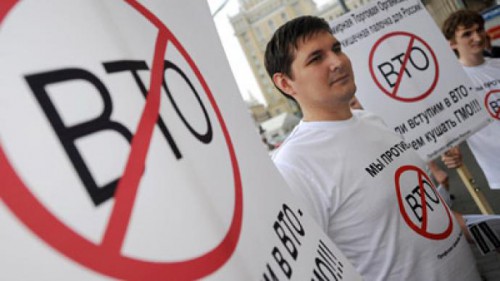

 del.icio.us
del.icio.us
 Digg
Digg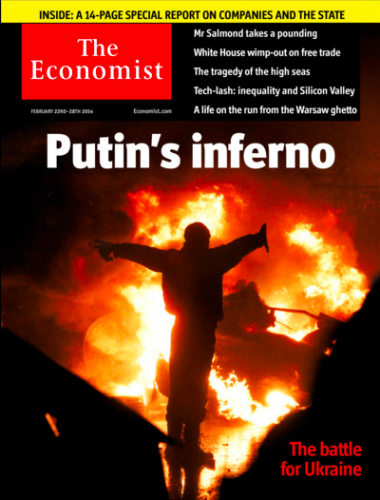

 Le “pouvoir” à Washington est une bien étrange chose. De temps en temps, il est bon d’en faire une “sociologie”, pour aussitôt préciser, même si cela va de soi, qu’il s’agit aussi bien d’une pathologie. Par “pouvoir”, certes, nous entendons l’influence dominante, qui n’a besoin ni d’arguments ni de raison, ni vraiment d’une puissance extraordinaire, parce qu’elle ne fait que transmuter en pseudo-concepts, en simulacre d’idées, la poussée évidente et constante du Système pour opérationnaliser la
Le “pouvoir” à Washington est une bien étrange chose. De temps en temps, il est bon d’en faire une “sociologie”, pour aussitôt préciser, même si cela va de soi, qu’il s’agit aussi bien d’une pathologie. Par “pouvoir”, certes, nous entendons l’influence dominante, qui n’a besoin ni d’arguments ni de raison, ni vraiment d’une puissance extraordinaire, parce qu’elle ne fait que transmuter en pseudo-concepts, en simulacre d’idées, la poussée évidente et constante du Système pour opérationnaliser la 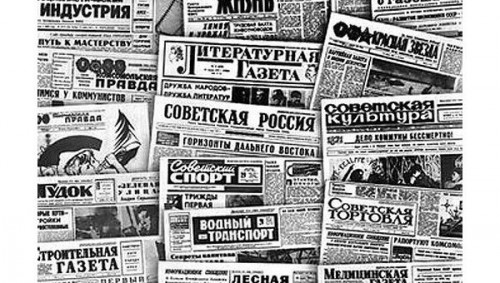

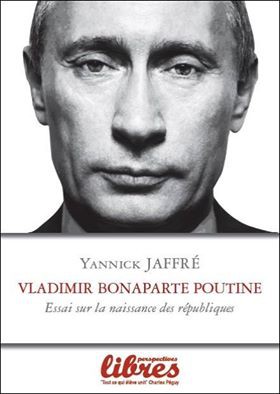
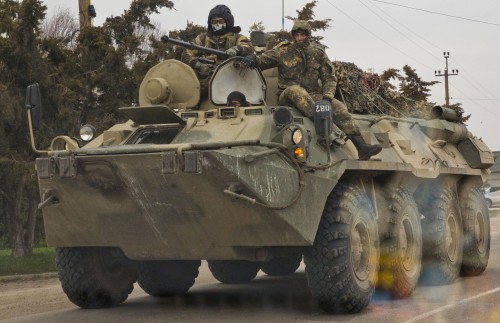
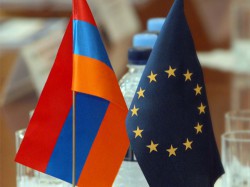 Afin de punir l’Arménie de sa future adhésion à l’Union douanière (regroupant la Russie, la Biélorussie et le Kazakhstan) et de ne pas souscrire à la position atlantiste dans l’affaire ukrainienne, l’Union européenne a décidé de ne pas signer d’accord majeur avec Erevan.
Afin de punir l’Arménie de sa future adhésion à l’Union douanière (regroupant la Russie, la Biélorussie et le Kazakhstan) et de ne pas souscrire à la position atlantiste dans l’affaire ukrainienne, l’Union européenne a décidé de ne pas signer d’accord majeur avec Erevan.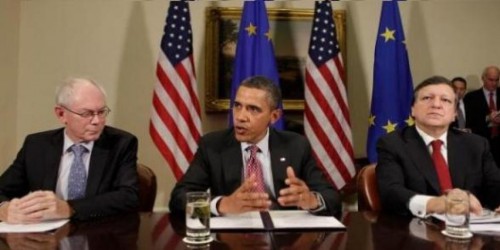





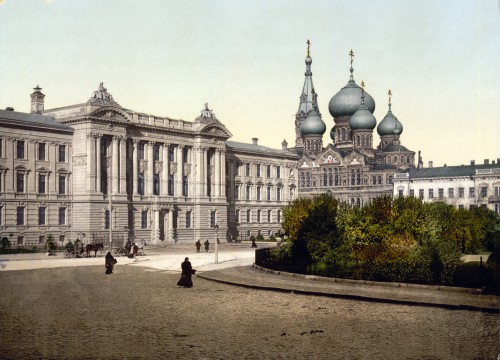
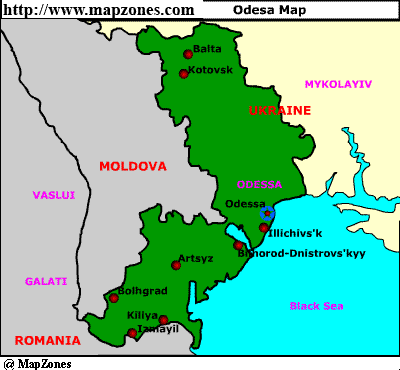 During the reign of Khan Haci I Giray of Crimea (1441–1466), the Khanate was endangered by the Golden Horde and the Ottoman Empire and, in search of allies, the khan agreed to cede the area to Lithuania. The site of present-day Odessa was then a town known as Khadjibey (named for Hacı I Giray, also spelled Kocibey in English). It was part of the Dykra region. However, most of the rest of the area remained largely uninhabited in this period. In 1765 the Ottomans rebuilt a fortress at Khadjibey (Hocabey), which was named Yeni Dünya. Hocabey was a sanjak centre of Silistre Province.
During the reign of Khan Haci I Giray of Crimea (1441–1466), the Khanate was endangered by the Golden Horde and the Ottoman Empire and, in search of allies, the khan agreed to cede the area to Lithuania. The site of present-day Odessa was then a town known as Khadjibey (named for Hacı I Giray, also spelled Kocibey in English). It was part of the Dykra region. However, most of the rest of the area remained largely uninhabited in this period. In 1765 the Ottomans rebuilt a fortress at Khadjibey (Hocabey), which was named Yeni Dünya. Hocabey was a sanjak centre of Silistre Province.
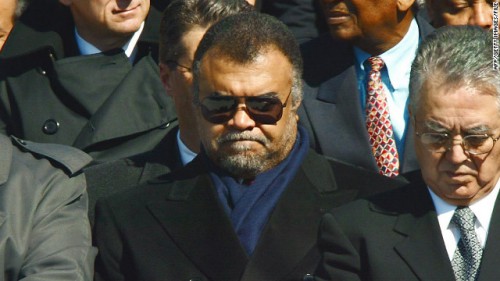
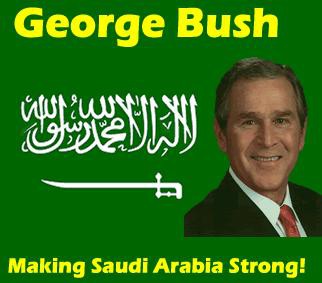 What makes Bandar such a key piece of the geopolitical puzzle is his intimate relations with the US political, diplomatic, and intelligence establishment. Having spent the majority of his career as the Saudi envoy to Washington, Bandar became an indispensible figure in the decades-old “special relationship” between the two countries. David Ottaway, author of The King’s Messenger: Prince Bandar bin Sultan and America’s Tangled Relationship with Saudi Arabia,
What makes Bandar such a key piece of the geopolitical puzzle is his intimate relations with the US political, diplomatic, and intelligence establishment. Having spent the majority of his career as the Saudi envoy to Washington, Bandar became an indispensible figure in the decades-old “special relationship” between the two countries. David Ottaway, author of The King’s Messenger: Prince Bandar bin Sultan and America’s Tangled Relationship with Saudi Arabia, 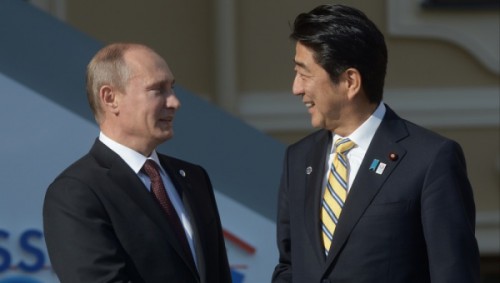
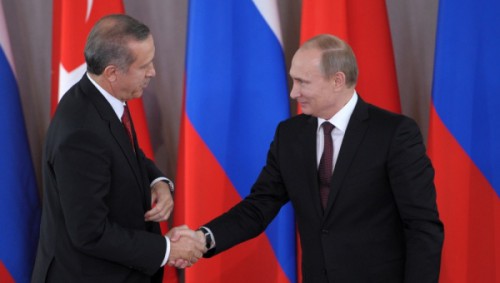
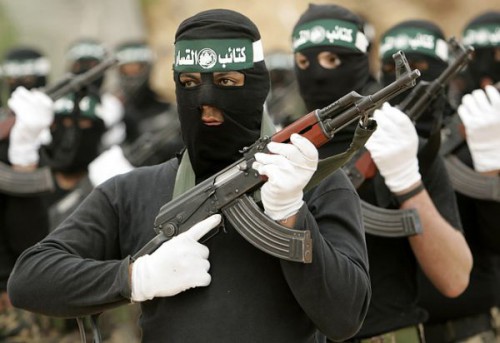
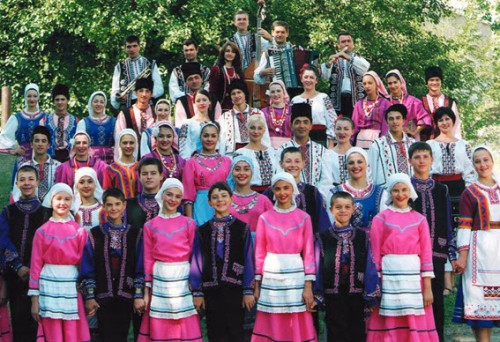



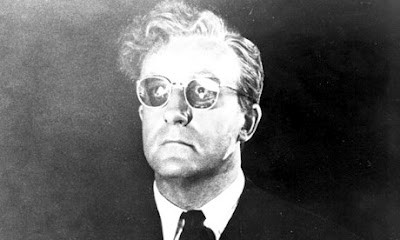
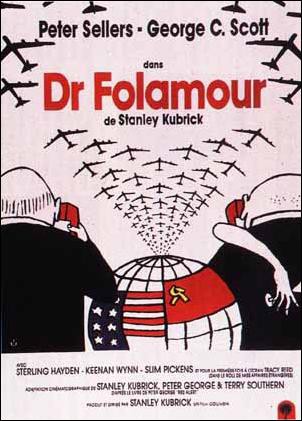 Following a 13-year rampage that began in stricken Afghanistan well after Osama bin Laden had fled, then destroyed Iraq beneath a false flag, then invented a “nuclear rogue” in Iran, dispatched Libya to a Hobbesian anarchy and backed jihadists in Syria, the US finally has a new cold war to supplement its worldwide campaign of murder and terror by drone.
Following a 13-year rampage that began in stricken Afghanistan well after Osama bin Laden had fled, then destroyed Iraq beneath a false flag, then invented a “nuclear rogue” in Iran, dispatched Libya to a Hobbesian anarchy and backed jihadists in Syria, the US finally has a new cold war to supplement its worldwide campaign of murder and terror by drone.
